January 25, 2023
Food security was a primary issue for Bhutan when the pandemic began. In response to broken supply chains due to border closures, the Bhutan Foundation made a swift pivot toward supporting projects that increase local food production.
Last month, our Thimphu team ventured to Eastern and Southern Bhutan to assess the progress of these projects. At organic farms, schools, and cooperatives, we witnessed firsthand the unique and innovative approaches our partners are taking to elevate food production and ensure food security in their communities. We also joined our partners to commission a new solar photovoltaic system in Aja Ney – the first of its kind in Bhutan!
We hope you enjoy these updates from our team in the field.
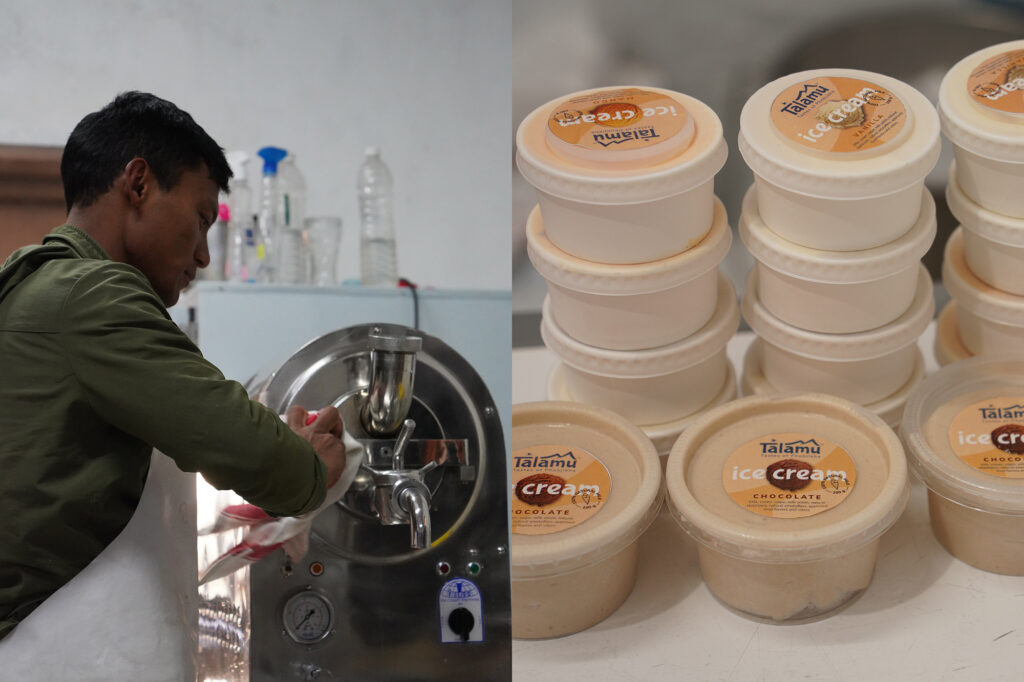
Dairy Farmers Diversify Products in Phobjikha
Our first visit was to Kuenphen Khemdro Omghi Detshen (KKOD), a motivated group of dairy farmers in Phobjikha, the valley of the Black-necked Cranes, in Western Bhutan. Last year, we supported the group through our small grants program with the aim of increasing their production capacity and diversifying their products. Through the program, the group installed a yogurt incubator, cup sealing machine, ice-cream making machines, a pasteurizing tank, and a blast-freezer.
We were able to chat with three young employees who oversee the daily operations of the plant, one of whom can be seen above cleaning their new machinery. They took us on a tour of the factory and explained what each new machine is capable of. They also showed us their new flavored yogurts and ice creams – products they’ve begun supplying to resorts, hotels, and homestays in Phobjikha Valley.
The future looks promising for KKOD as they continue their mission to improve livelihoods and boost income in Phobjikha Valley with their expanding range of products and growing market.
Donate to Our Small Grants Program To Support KKOD →
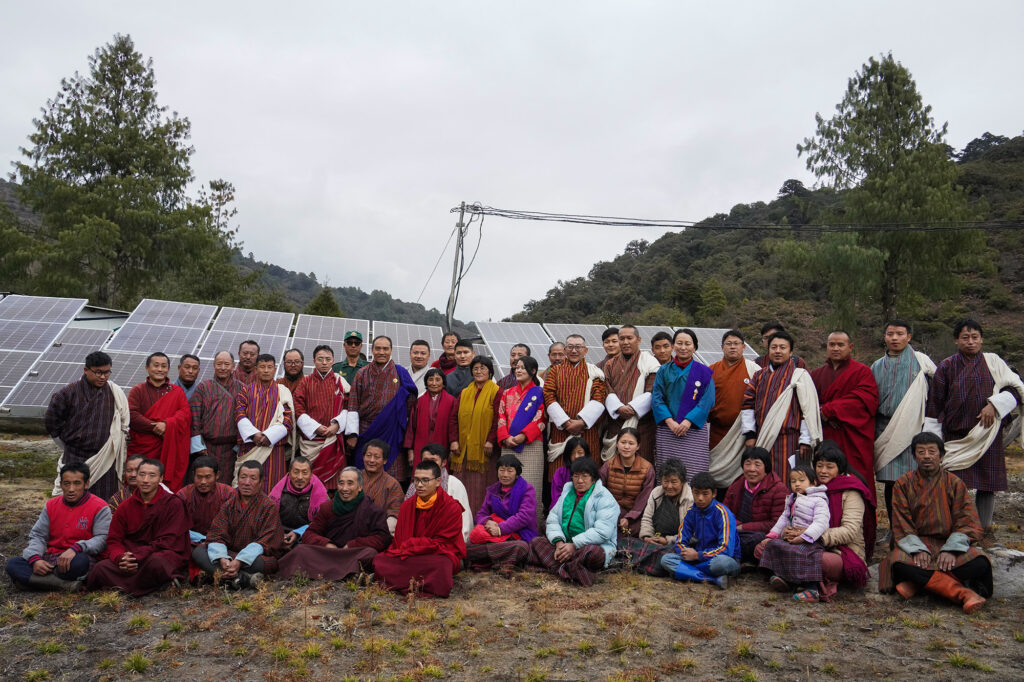
Harnessing the Sun to Light a Community in Mongar
Two days later, we hiked to Aja Ney in Eastern Bhutan – a six-hour journey on foot from the nearest road in Yarab – to celebrate the commissioning of an 80 kW solar PV system that brought electricity to the community. His Excellency Lyonpo Loknath Sharma, Minister for the Ministry of Economic Affairs, inaugurated the plant virtually from the capital, a remarkable feat made possible by the new source of electricity.
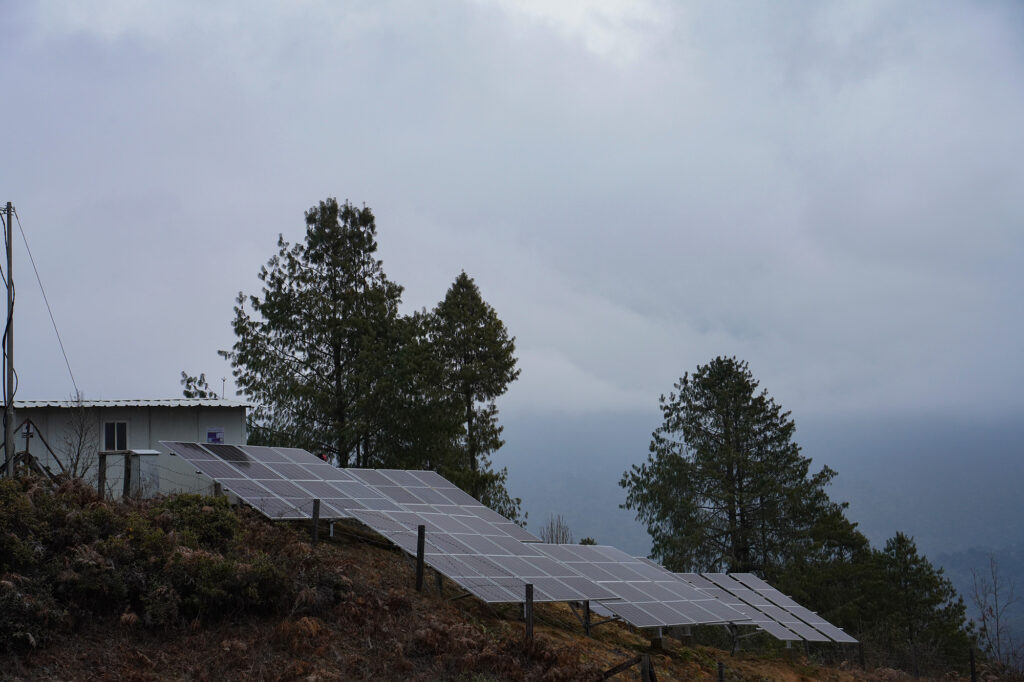
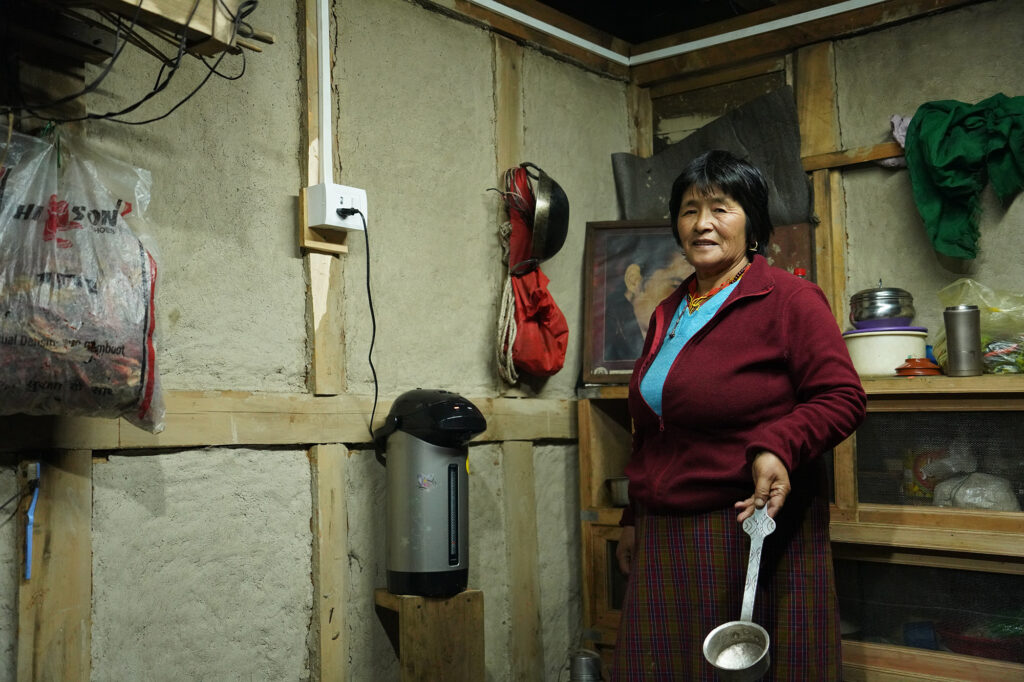
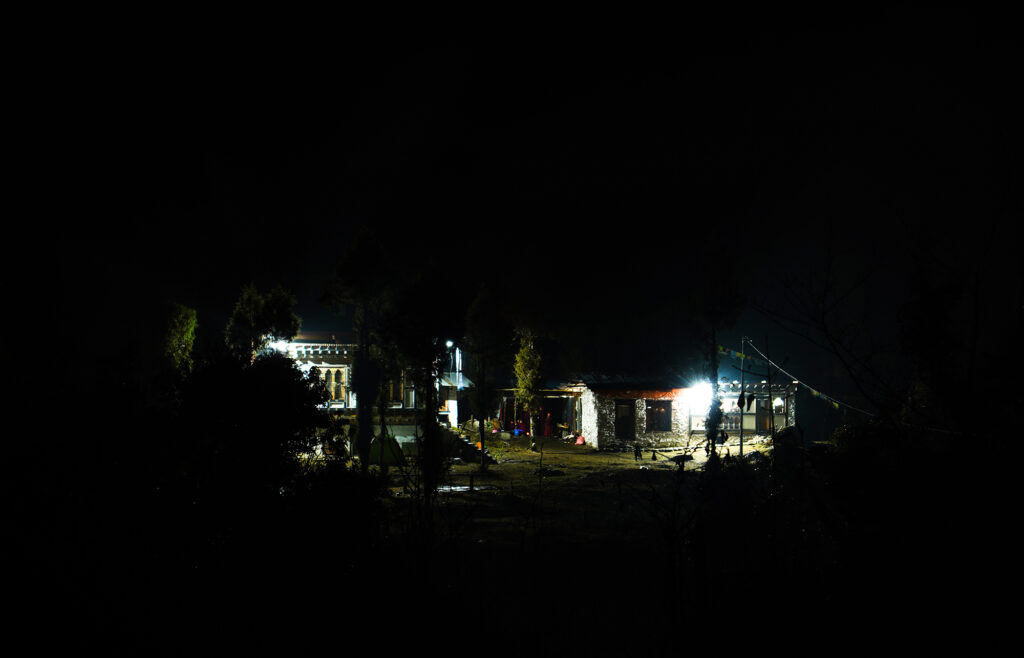
We were eager to see this long-awaited project brought to fruition and residents abuzz with excitement about its potential to uplift the community. The ability to cook, heat, and light their homes without having to resort to fuelwood and kerosene will open the door for the development of ecotourism in this remote area, all powered by clean, renewable energy.
Watch a Short Film on This Project →
This project was jointly funded by Bhutan for Life, Bhutan Foundation, and GEF-Small Grants Program UNDP, and implemented by the Department of Renewable Energy and the Bhutan Ecological Society.
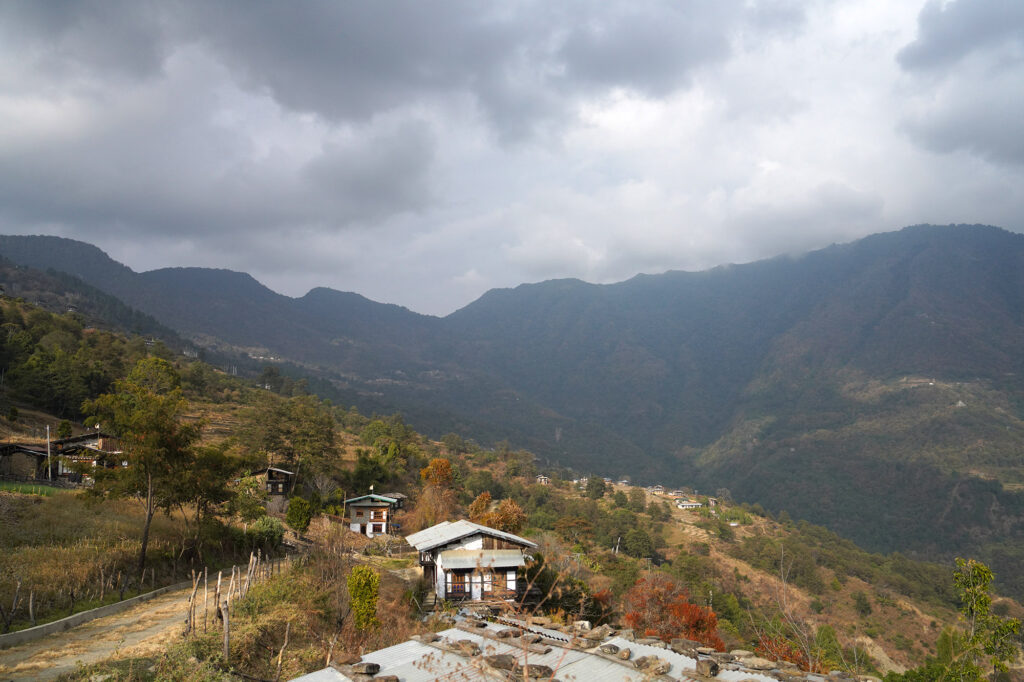
Revitalizing the Soil in Trashigang
Biochar and wood vinegar are innovative and sustainable products for increasing crop yields and soil fertility, while also providing both short- and long-term benefits for farmers and the environment. In Trashigang, a district in far Eastern Bhutan, we visited Bartsham village to check in on one of our newest small grants program projects aimed at producing both.
A key component in the production of biochar is a pyrolysis chamber. This chamber is used to convert waste products such as wood chips, dead plants, and other debris into a nutrient-rich black, mud-like substance. The conversion is achieved through a process of pyrolysis, which involves burning the waste materials in a controlled environment with very little oxygen. Once completed, the resulting biochar is an incredibly effective soil amendment that can be used to improve soil fertility and structure.
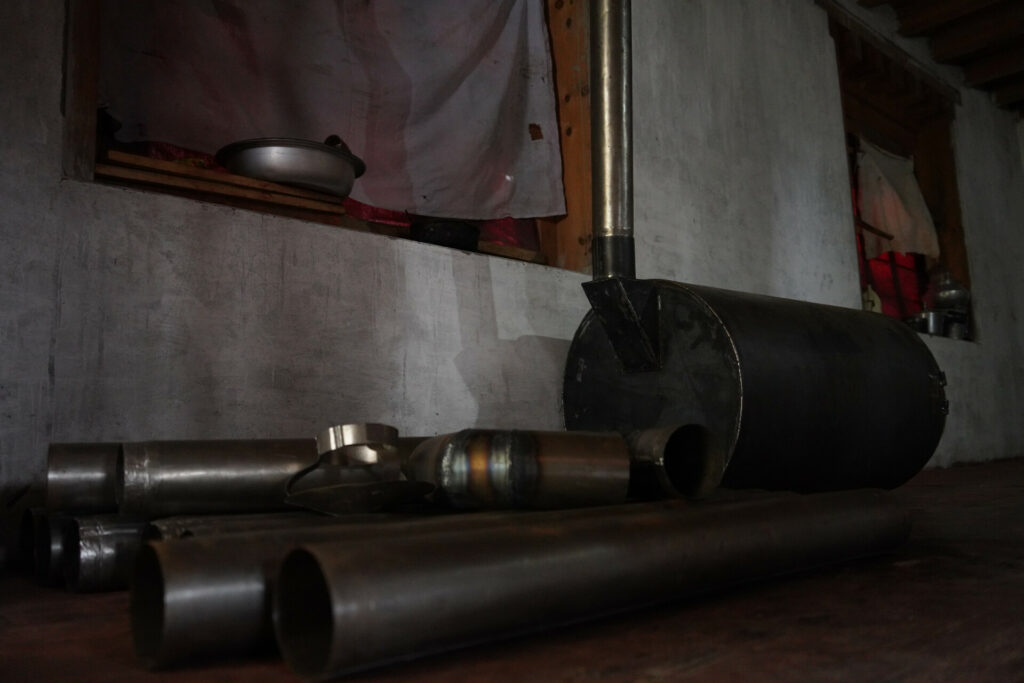
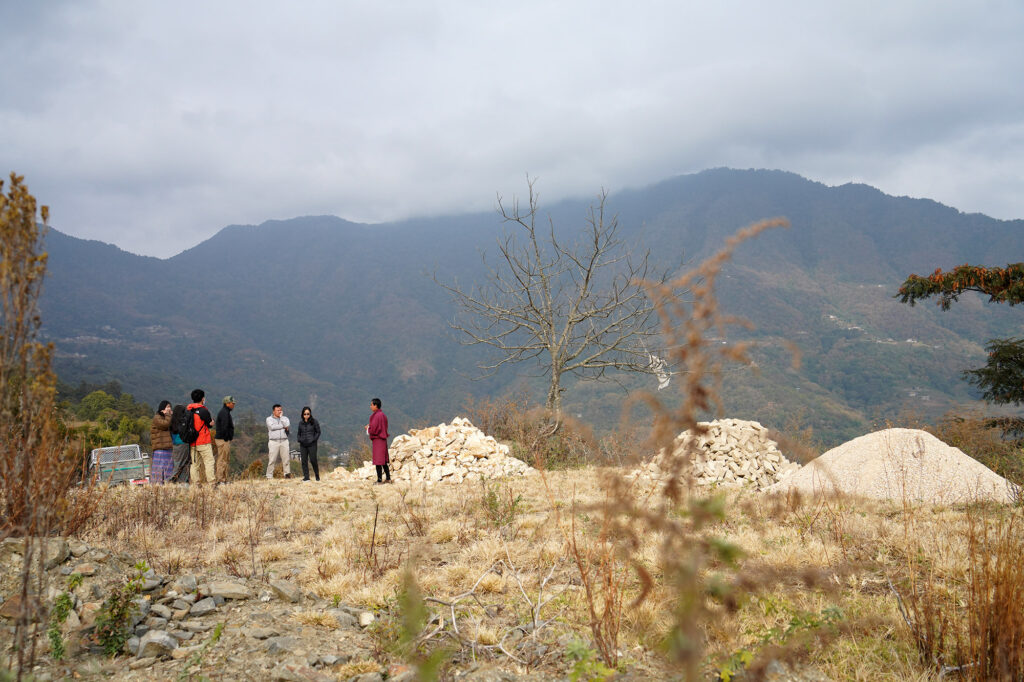
With our support, the Happy Farmers Group has bought and assembled their pyrolysis chamber, shown above, in record time and are waiting on the construction of a shed at their project site to install it. By providing Bartsham village with increased soil fertility and higher crop yields, the new plant will contribute to making Trashigang more sustainable and food self-sufficient for years to come.
Donate to Our Small Grants Program To Support the Happy Farmers Group →
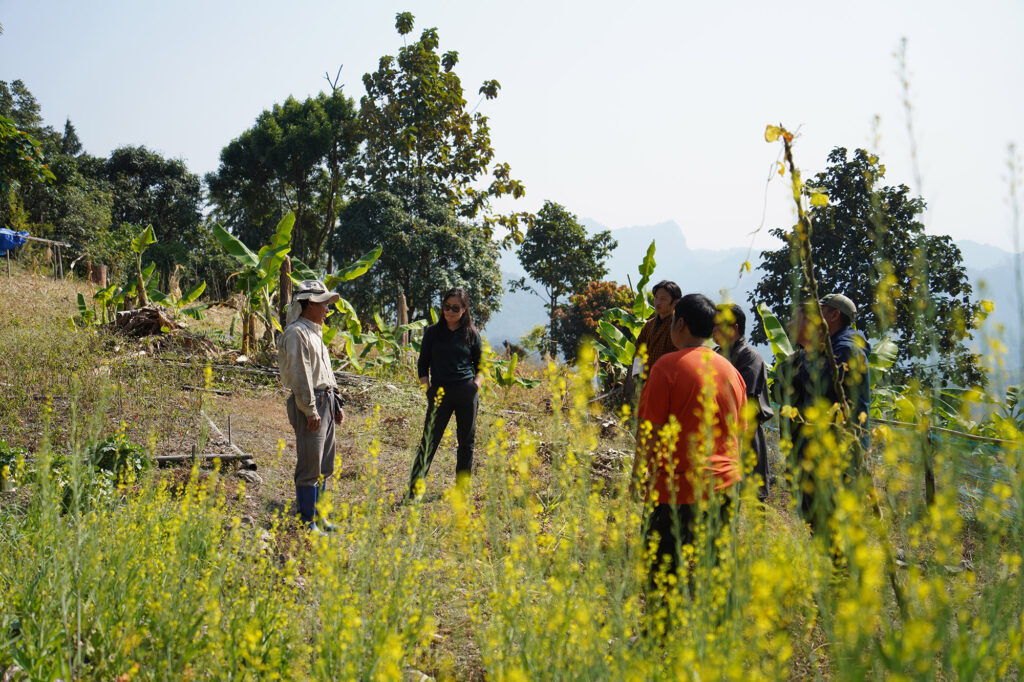
Improving Urban Farming in Dewathang
Next, we visited organic farms in Dungkhar Choling and Garpawoong villages in Dewathang, under the Samdrup Jongkhar district in South-eastern Bhutan. We had the pleasure of meeting with a few inspiring lead farmers and urban/peri-urban farmers in the area who have been greatly impacted by our projects implemented in collaboration with the Samdrup Jongkhar Initiative (SJI).
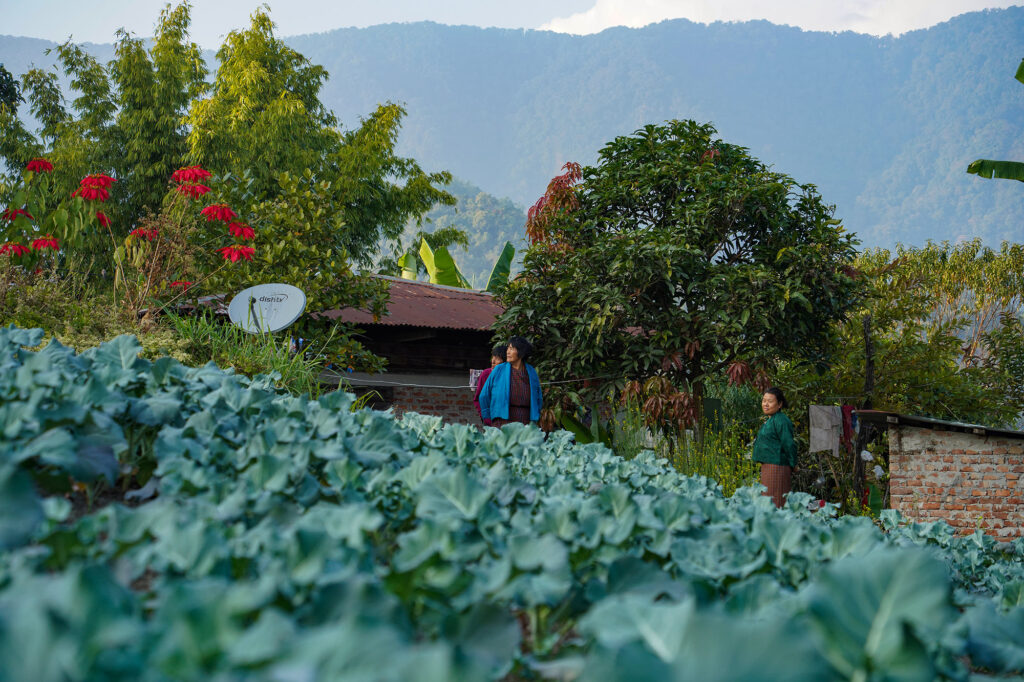
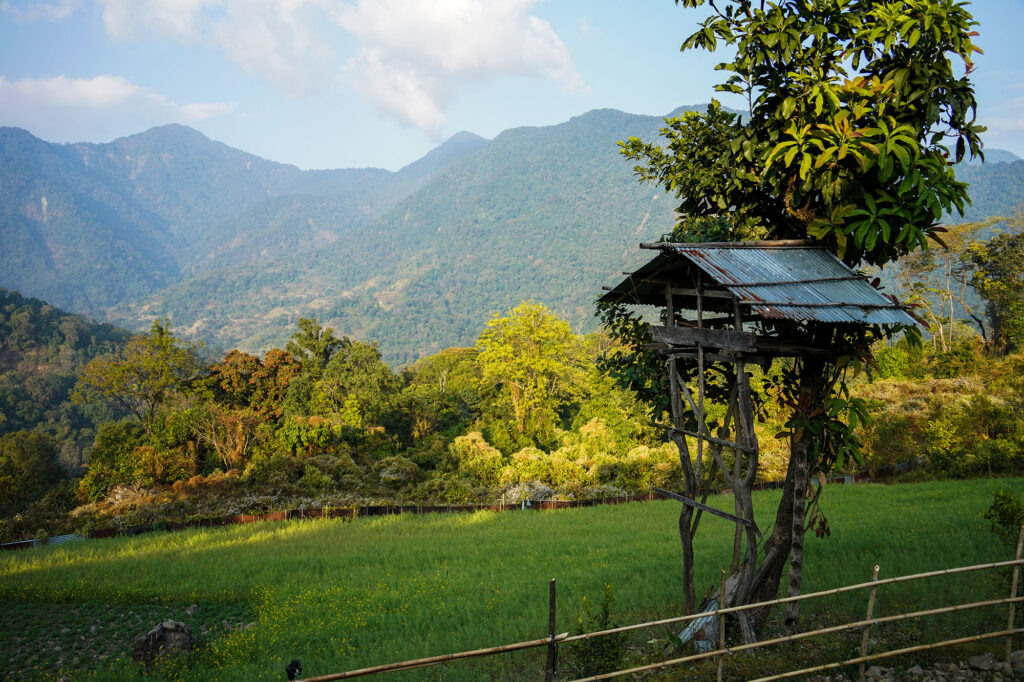
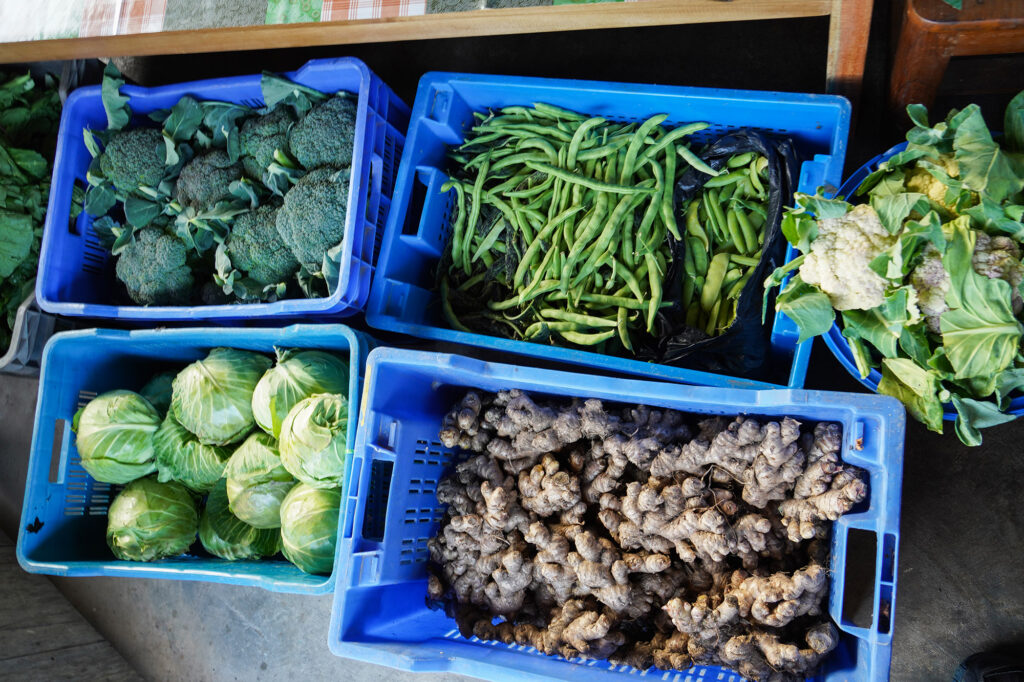
To meet the increasing demand for organic manure, a product some farmers have already begun to prepare on their own, SJI is looking to promote the use of vermicompost. Vermicompost is an environmentally friendly, nutrient-rich fertilizer produced by the decomposition of organic matter by earthworms. Not only does it provide an excellent source of nutrients for crops, but it also helps improve soil structure and water retention.


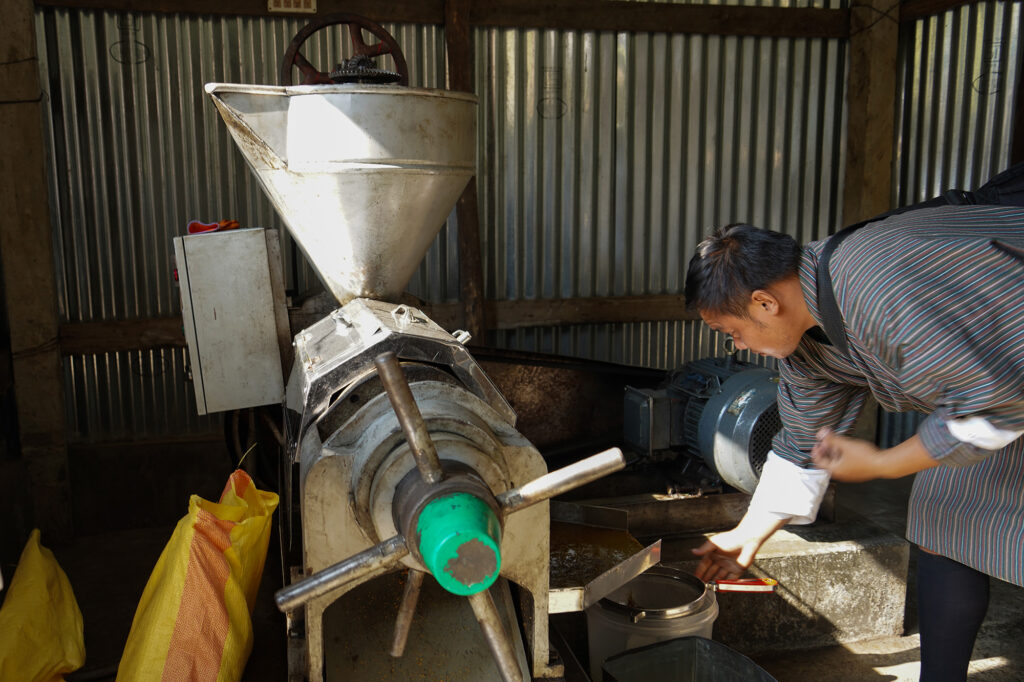
Furthermore, an SJI Farm at Garpawoong is a promising organic farm that has revived the cultivation of mustard and installed a heavy-duty oil expeller. The farm has plans to create vermicompost as part of its outreach and capacity-building program, specifically targeted to empower female farmers.
We learnt of numerous challenges confronting the Dewathang farming community, including human-wildlife conflicts, labor shortages, limited access to irrigation water, and a lack of marketing. In response, the Foundation will continue to work in tandem with SJI and Dewathang farmers to effectively address these challenges and help to further increase food production in the region.
Donate to Our Small Grants Program To Support Dewathang Farmers →
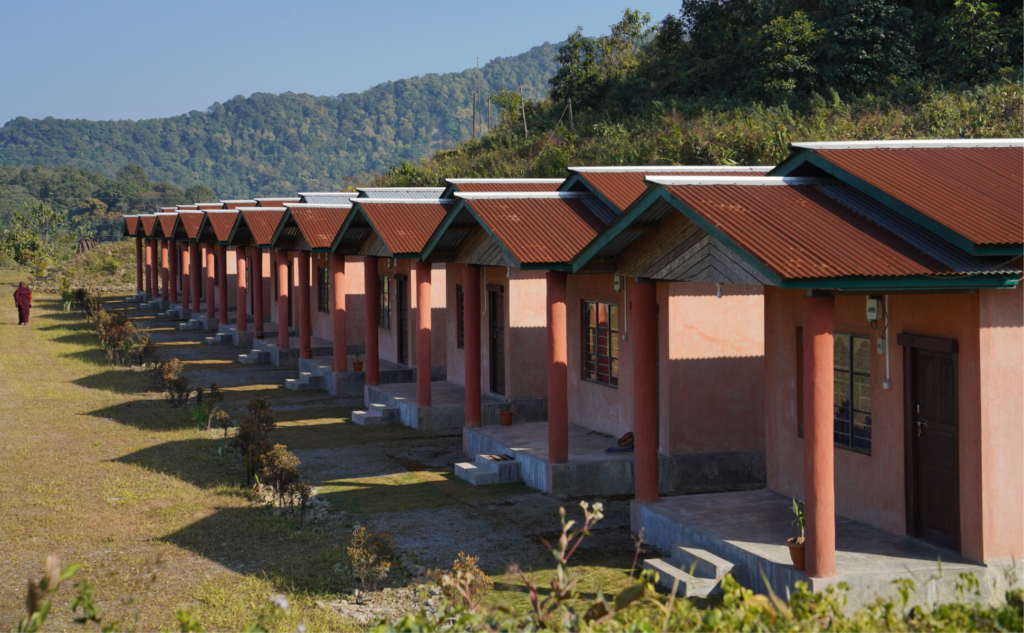
Exploring Sustainability at Norbugang Shedra and Primary School
On our journey to Panbang, the Southernmost part of Bhutan, we were delighted to visit Norbugang Shedra (monastic school) and Norbugang Primary School. We were even more pleased to discover that the Khenpo, or head monk, of the Shedra had implemented a number of groundbreaking projects to promote sustainability and food self-sufficiency.
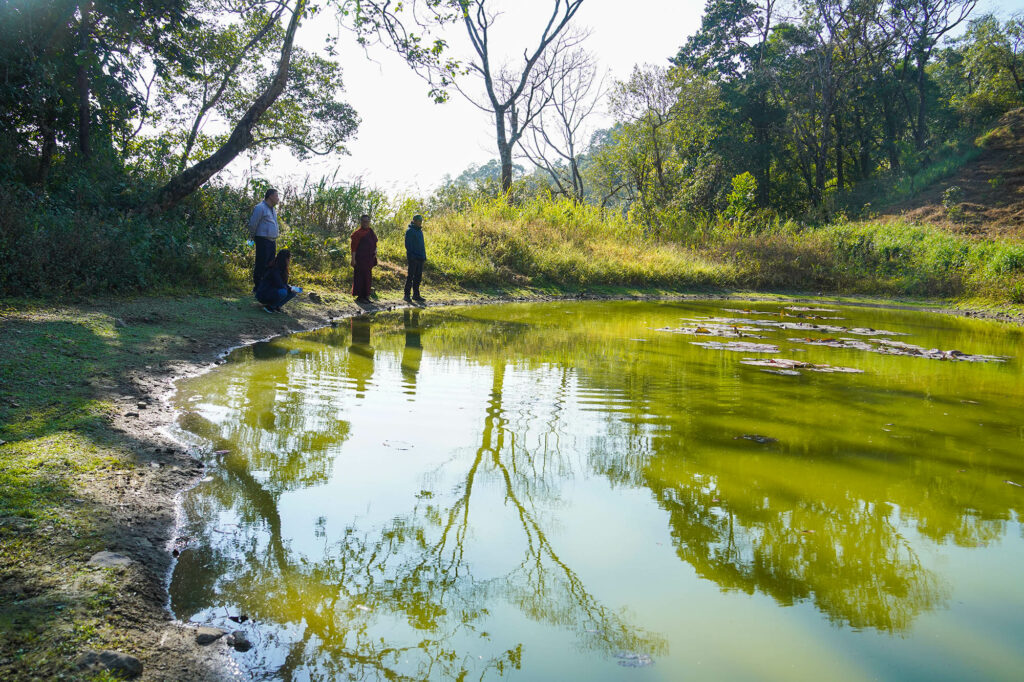
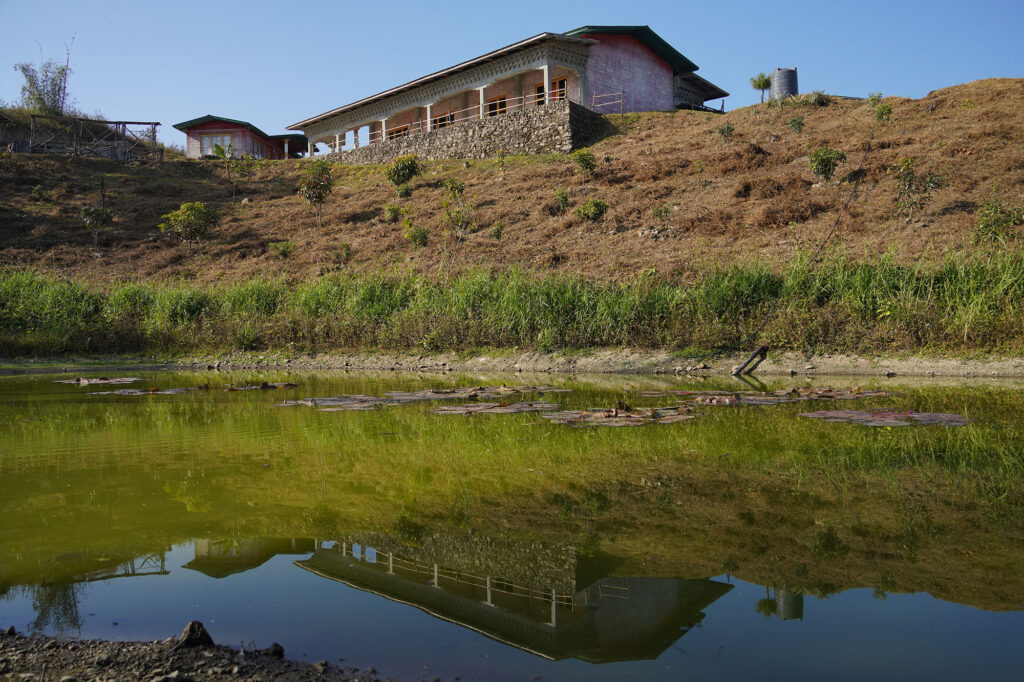
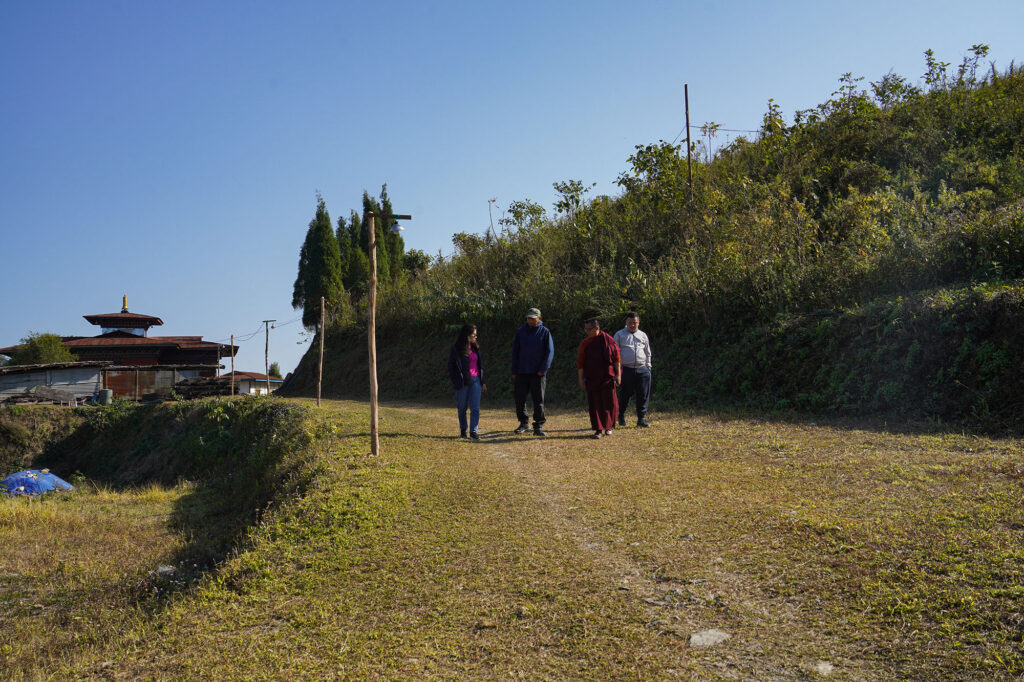
From a water recharge pond to garden vegetables and fruit tree plantations, the monastic school plans to be a self-sustaining center in the near future. Their produce output is already so great that they hardly need to import fruits and vegetables to meet the needs of the monastic students. Furthermore, the artificial lake developed by the Shedra has resulted in the revival of two springwaters in Norbugang, improving the local water supply and quality. To further the progress, the Shedra is now partnering with SJI to promote organic vegetable farming and revive orange orchards in Norbugang village.
With our support, the Shedra previously implemented the hunter-to-hermit program which helped convert tiger poachers into Buddhist practitioners. This project continues to be a success to this day and the community no longer sees issues related to tiger hunting in Norbugang.
To top it off, toilets constructed by the school staff during the pandemic with support from the Bhutan Foundation in Norbugang Primary School were well-maintained with clean running water.
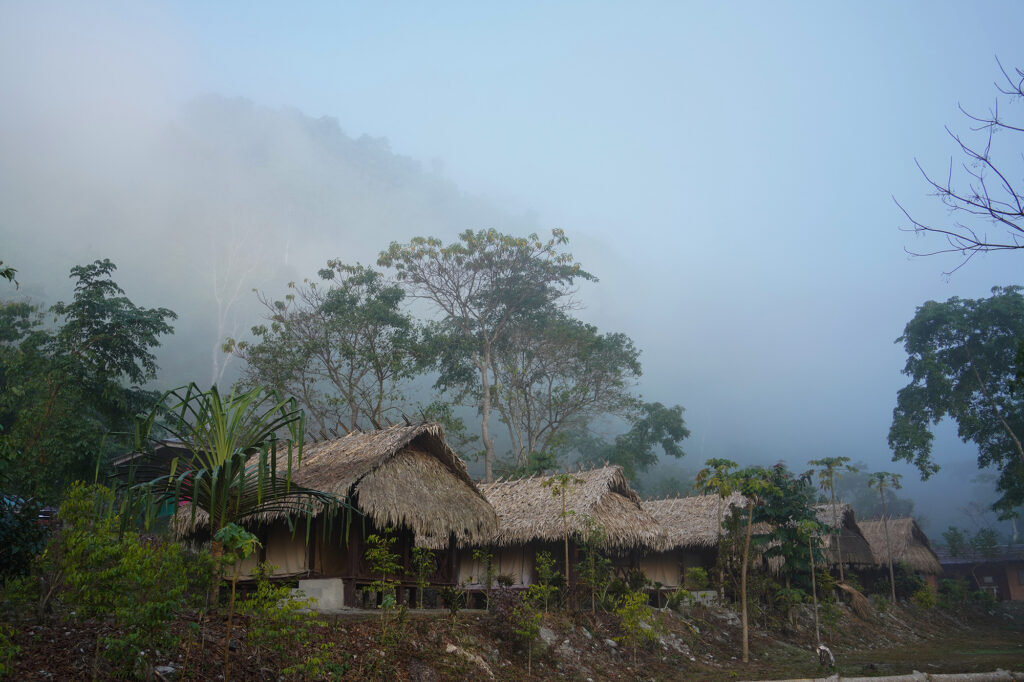
Organic Farms, River Guides, and Tigers of Panbang
Sanitary facilities were also a priority for the River Guides of Panbang, a long-standing partner we met while in the district. With our support, the team has excelled in their efforts to improve the jungle facilities during the pandemic, ensuring a safe and hygienic environment for staff and their customers.
After being dormant for several years due to travel restrictions, the company reopened in October 2022, and has since welcomed over 200 guests. As they look ahead, RGP is seeking support to create a comprehensive business plan, build internal capacity, and generate the necessary funds to upgrade their rafting equipment. This will ensure that the company is well-equipped to operate at the highest-level of safety and efficiency for all their customers.
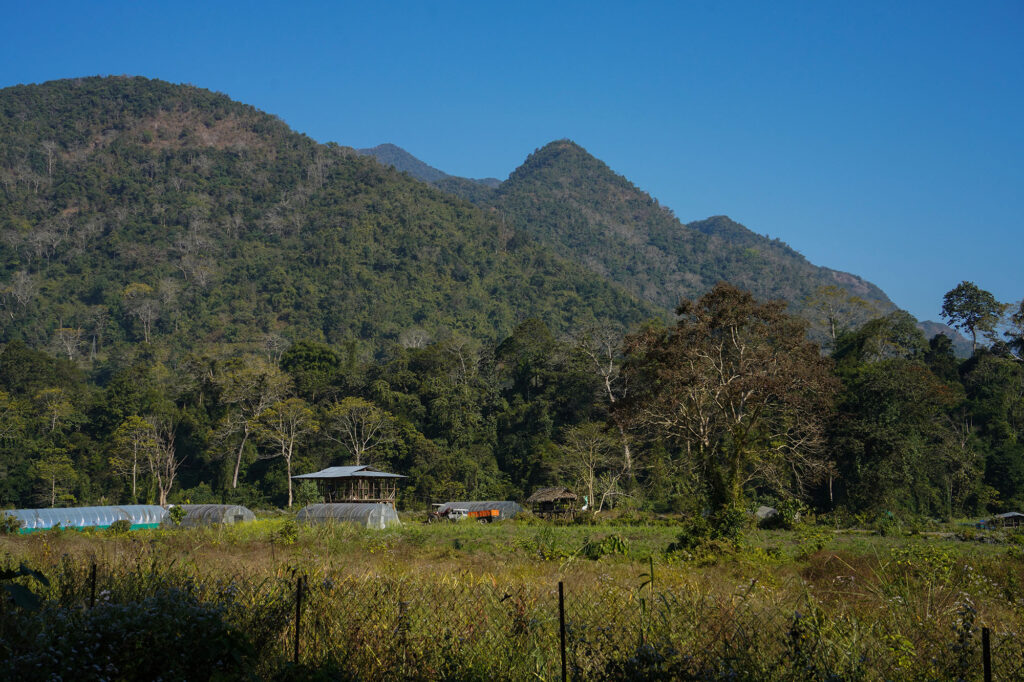
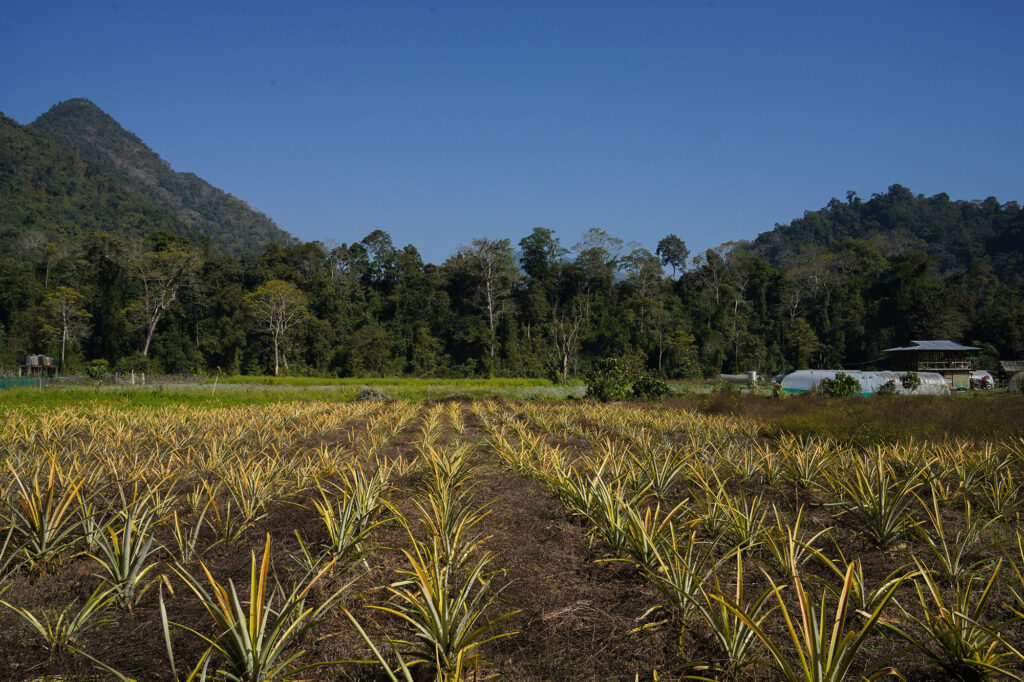
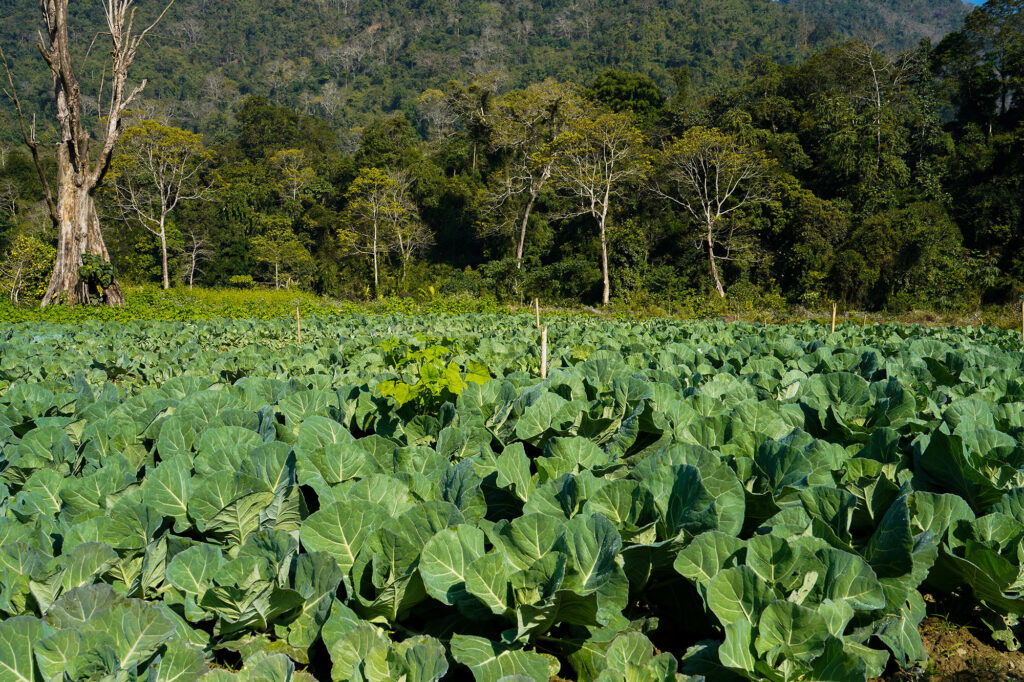
We also visited Panbang Youth Cooperative (PYC) – a promising youth group that ventured into farming after graduating college. Despite the challenges of the pandemic, PYC’s products were in high demand within the community due to border closures and disruption to the food supply chain. We were given a tour of the farm, which was sprawling and full of productive greenhouses, with a variety of crops ranging from pineapples and spinach to cabbage and chili. The group shared emerging issues with us, such as the lack of water retention in their fish ponds, and we discussed ways the Foundation could assist in overcoming these challenges.
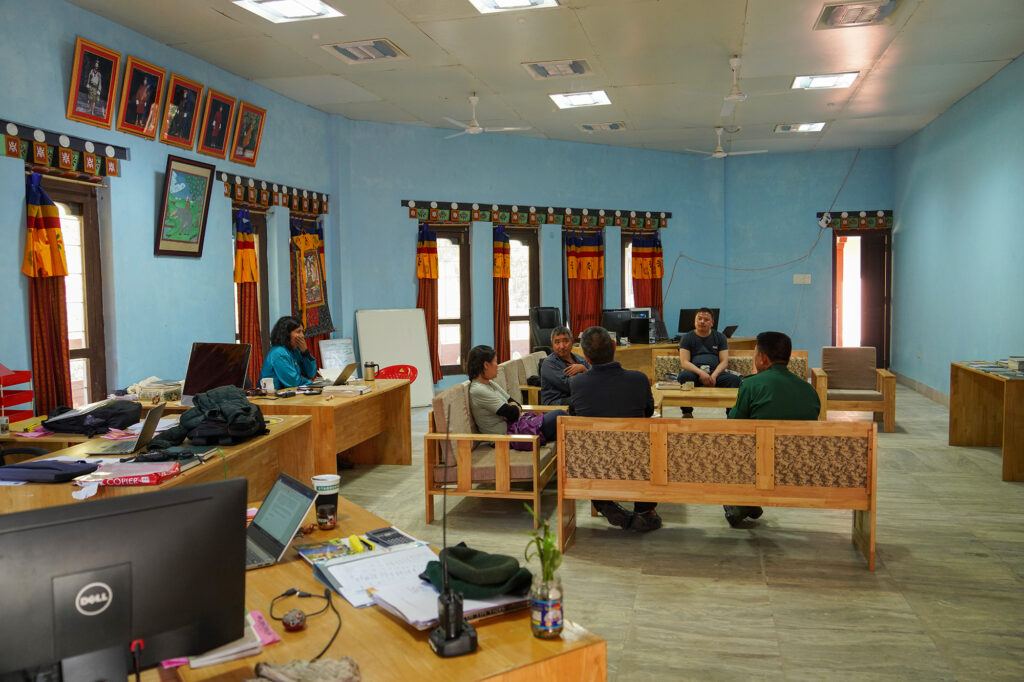
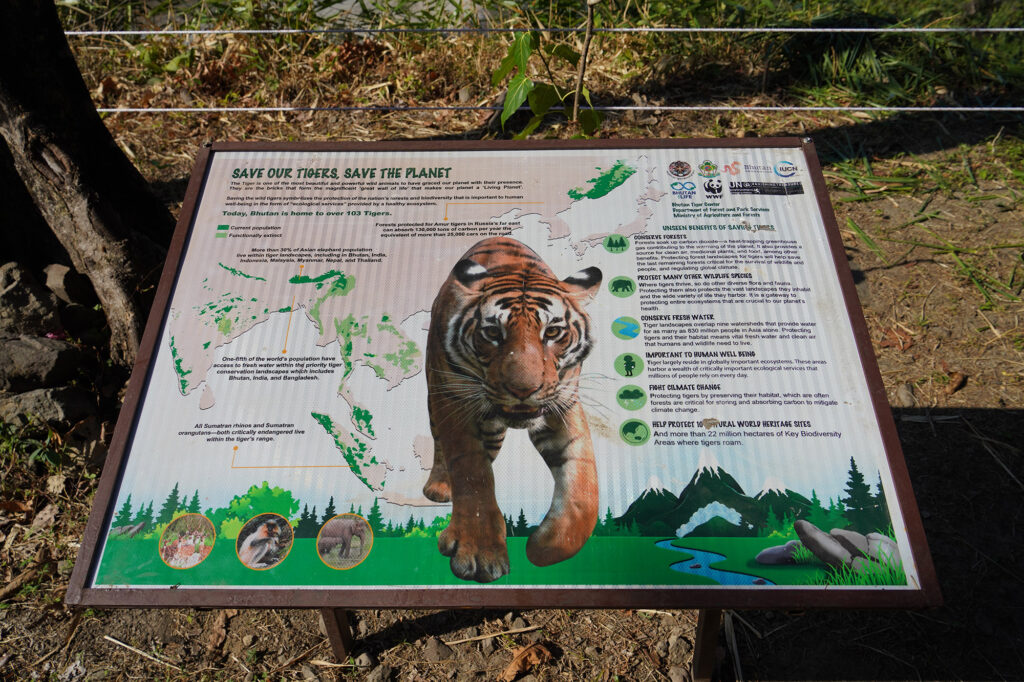
At our last stop in Panbang, we had the privilege of visiting the Bhutan Tiger Center in Mathangguri. We met with the Program Director and the staff, and were pleased to hear about the relocation from Gelephu. During our visit, we had a constructive discussion about the Center’s tiger conservation initiatives and how the Foundation can continue to support them.
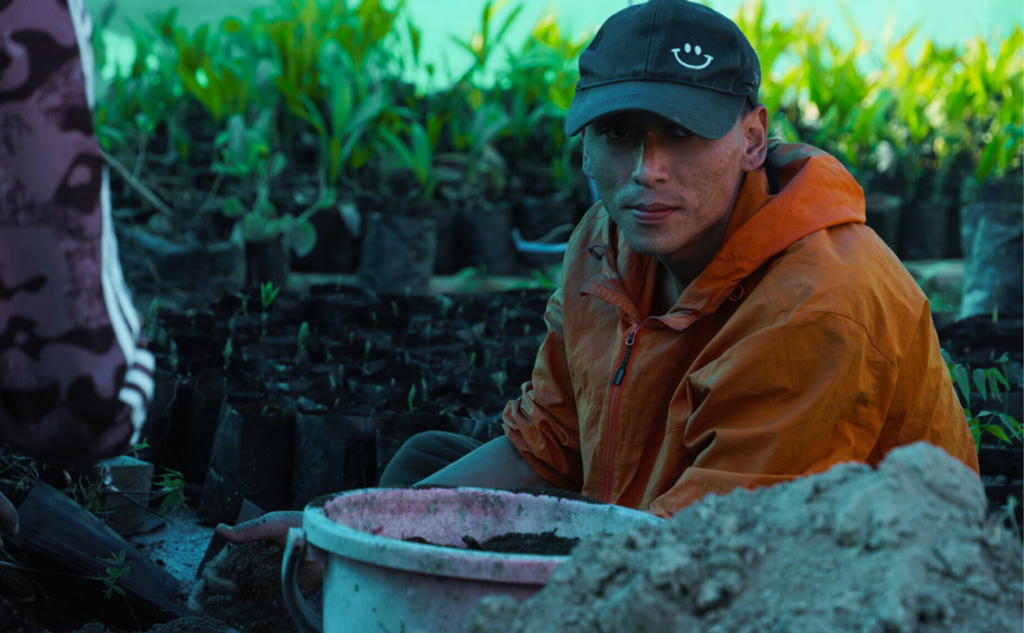
PK Organic Farm and the Million Tree Project Nursery in Gelephu
Our journey came to a close with visits to PK Organic Farm and the Million Tree Project’s nursery in Gelephu. At PK Organic Farm, we were impressed by the sheer scope of their protected agriculture and the abundance of fresh, healthy vegetables it produced. Not only does the farm have the potential to significantly reduce imports from neighboring countries, but its nearly self-sustaining farming practices and volunteer internship program with the College of Natural Resources in Punakha also stand out. After some discussion, we agreed that they would benefit from exploring new markets for further growth as a group.
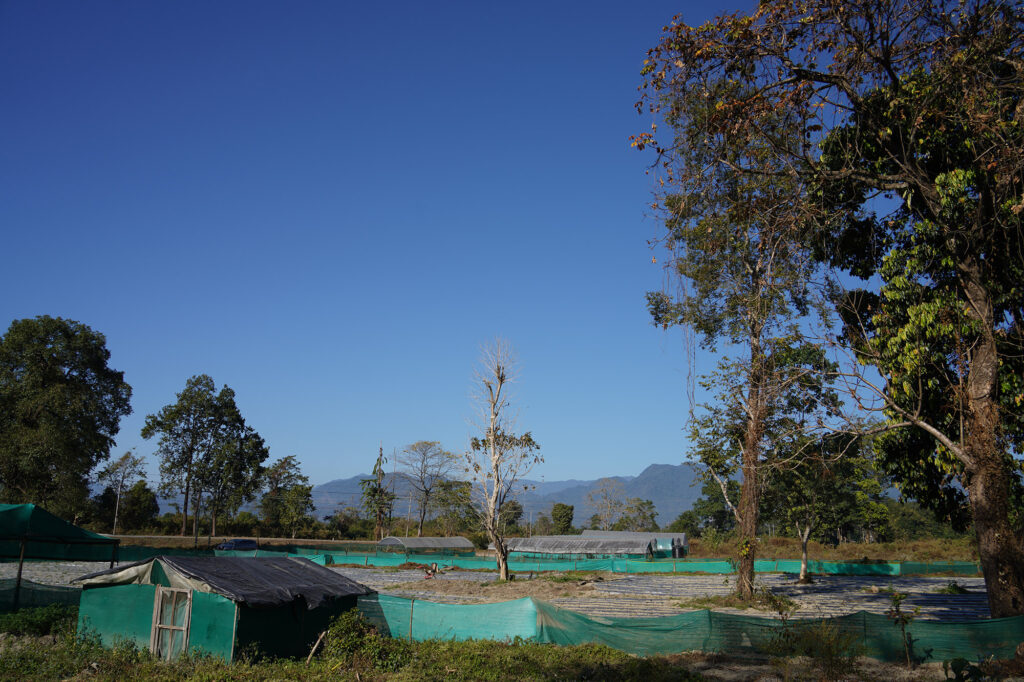
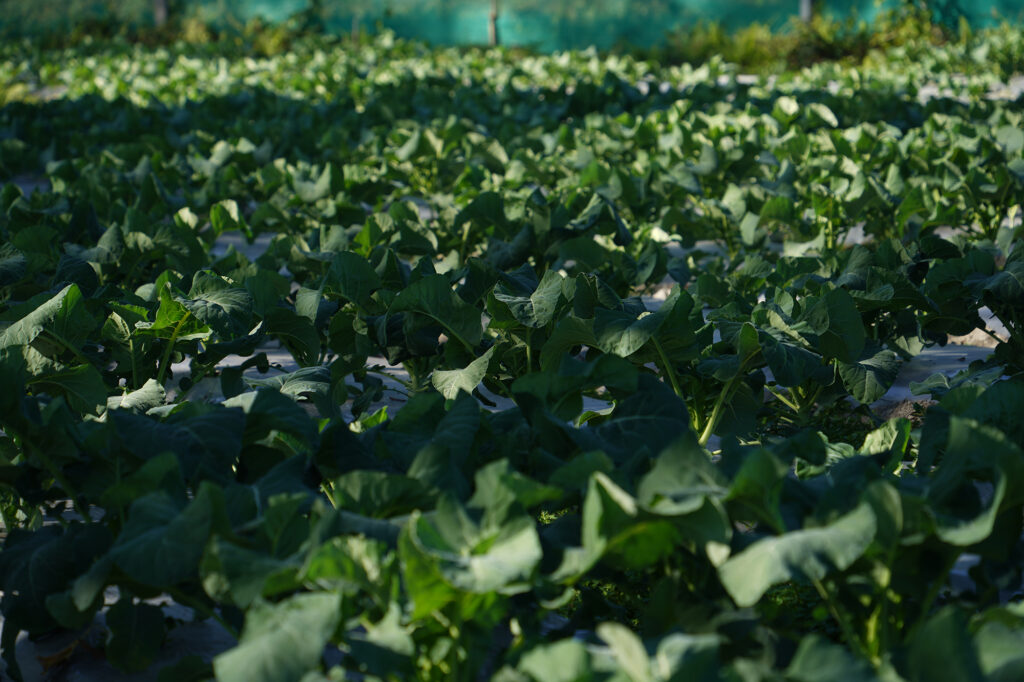
The Million Tree Project, implemented by the Bhutan Ecological Society with support from the Bhutan Foundation since 2021, aims to improve farmers’ livelihoods by providing a variety of fruit trees, timber, and productive saplings. The project operates its own nursery to grow and distribute these trees across Bhutan. Our final destination on the trip was the nursery, where we were able to see firsthand the impressive work being done to promote sustainable agriculture in the country.
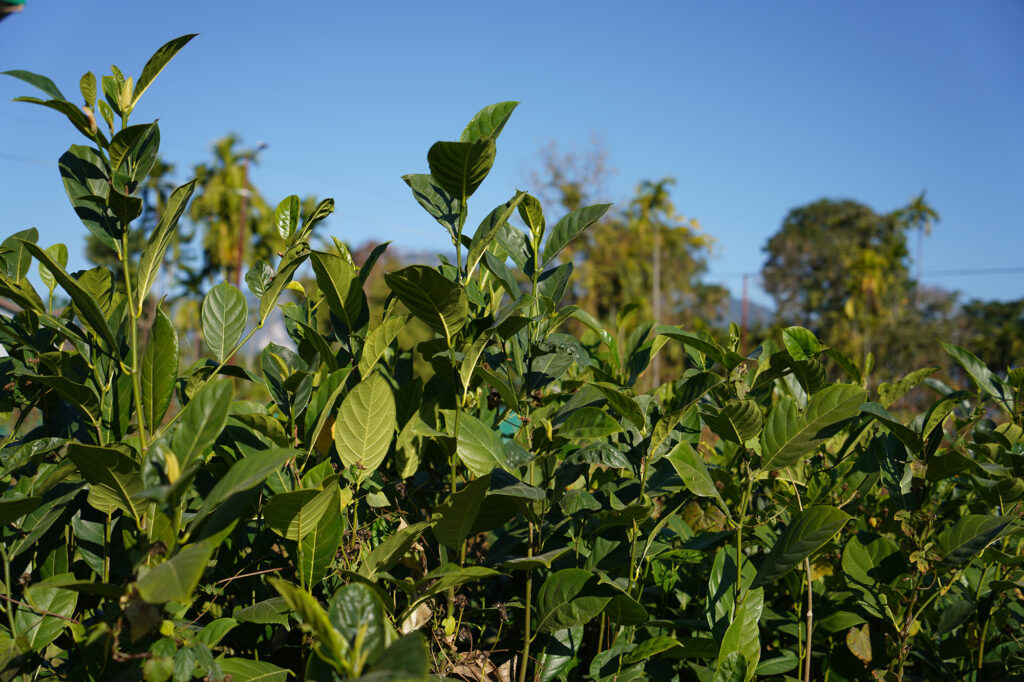
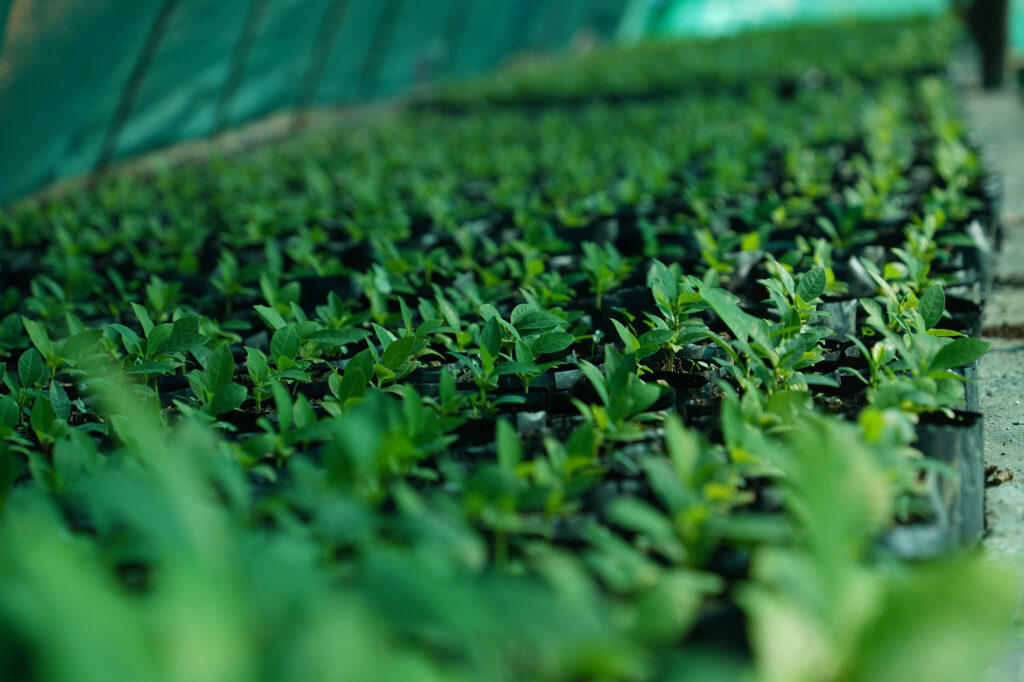
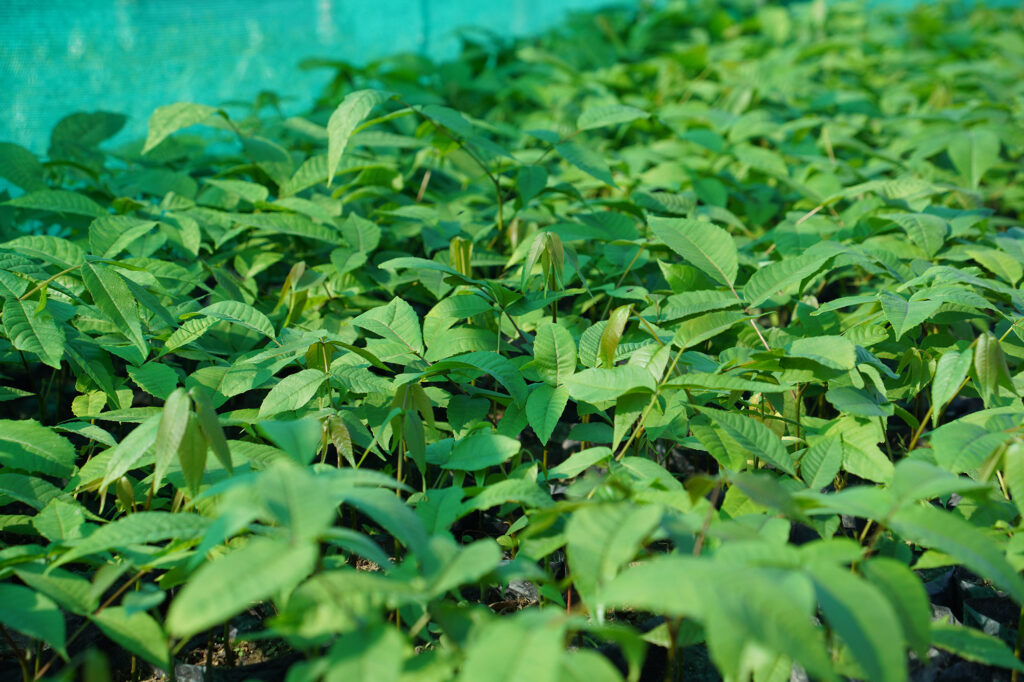
All of these programs were made possible through the generous support and guidance of our donors, Board of Directors, and Friends of Bhutan. The Bhutan Foundation is dedicated to bringing lasting, impactful, and sustainable progress to the lives of underserved and unreached communities in Bhutan. We are deeply grateful for your unwavering support and look forward to continuing our work together to improve the lives of rural communities in Bhutan.
Sincerely,
